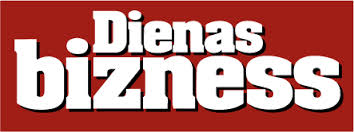Opinion
The systemic roots of Russia’s recession
To understand the deep causes behind Russia's recession, we must look at the history of the Russian transition and its partial reversal.





This op-ed was also published in El Mundo, Rzeczpospolita, Sina, MNI news, Finance, Dienas Bizness and Kamara online. .
The recession in Russia began in mid 2014, when seasonally adjusted quarterly GDP started to decline. At first the decline was slow (in 2014 annual growth remained positive at 0.6 percent) but in 2015 real GDP declined with increasing momentum, with a fall of 2.2 percent in the first quarter and 4.6 percent in the second quarter, compared with 2014.
To understand the deeper causes of the current recession, we must look at the history of the Russian transition and its partial reversal. Russia was never a star reformer. Its economic transition in the 1990s was long and painful because of the complex legacy of the Soviet system (structural distortions, macroeconomic imbalances and the absence of market institutions) and because of insufficient political support for market-oriented reforms.
Nevertheless, at the beginning of the new millennium, those reforms started to bear fruit. In 1999 the Russian economy entered a phase of rapid growth on the back of increasing oil prices. At that time, Russia could be considered a country that had completed its basic transition agenda and managed to build a market economy based on private ownership, even if significant distortions and imperfections continued to exist.
The turning point came in 2003 with the politically motivated crackdown on the largest Russian private company, Yukos, whose assets were subsequently taken over by the state-owned Rosneft. This was followed by other state takeovers in subsequent years, especially in oil and gas, financial, military and infrastructure sectors. As result, Russia started to build a sort of hybrid system heavily controlled and dominated by the state bureaucracy and the ruling elite. The tighter political and administrative grip on the economy has been accompanied by a revival of political authoritarianism.
The negative effects of recentralisation in Russia became fully visible in 2008-09 when the global financial crisis hit. In 2009, the Russian economy contracted by 7.8 percent, and has since failed to resume its pre-crisis growth. From 2010-12 growth was muted but reasonable, with annual GDP growth of 5.4 percent, 4.3 percent and 3.4 percent respectively. However, by 2013 – well before the conflict with Ukraine and resulting international sanctions, and the oil-price decline – it had already slowed down to 1.3 percent.
As result of incomplete economic reforms in the 1990s and then their partial reversal, Russia is not a friendly country for business, domestic or foreign. This is confirmed by several international rankings, in particular, the Transparency International Corruption Perception Index of 2014, in which Russia is ranked 136 out of 175 countries, and the 2014 Heritage Foundation Index of Economic Freedom, which places Russia at 140 among 178 countries as ‘mostly unfree’ economy.
The World Bank Doing Business survey and Global Competitiveness Index from the World Economic Forum put Russia in the middle of the summary ranking, with some improvement in recent years. However, in both rankings Russia fares badly in relation to property rights protection, corruption, judicial independence, the burden of government regulation, the efficiency of the legal framework in settling disputes, organised crime, reliability of police services, competition and quality of infrastructure.
Given this evidence of poor governance and business climate, it is hardly surprising that Russia is a net capital exporter, with a substantial part of its gross domestic savings not invested within the country but invested abroad.
On top of the systemic roots of the slowdown, in 2014 the Russian economy was hit by two additional shocks, firstly international sanctions in response to the annexation of Crimea and military interference in Donbass (Ukraine), followed by Russian trade counter-sanctions; and secondly a sharp decline in the international prices of oil and other commodities. Both led to an intensification of capital outflows, deep depreciation of the ruble (by 48.5 percent against the US dollar between June 30, 2014 and September 30, 2015) and a sharp contraction in domestic demand.
Record-high capital flight in 2014 reflected a further deterioration of the business climate (in particular, insecurity of property rights), which in turn resulted from tighter government controls over the media, the judicial system, civil society and business activity, in addition to new restrictions on foreign investors. US and EU sanctions substantially reduced the possibility of external financing for large Russian companies and banks. Russian counter-sanctions targeted food products from the EU and other western countries, and hit consumer markets and import-dependent Russian firms.
According to the IMF World Economic Outlook October 2015 forecast, Russia’s GDP is expected to decrease by 3.8 percent during 2015, and by 0.6 percent in 2016. Growth is forecast to return only from 2017, and in the range of 1.0-1.5 percent.
In the short term, potential growth will depend on oil prices and the political ability to resolve the Ukrainian conflict. Higher oil prices, for example $60-70 per barrel, and a relaxation of the sanctions regime could provide Russia’s economy and budget with some respite and could ease somewhat the largely negative perception of the business climate in Russia. In addition, a continuation of conservative monetary and fiscal policies could help to prevent new episodes of macroeconomic turbulence of the sort observed at the end of 2014 and in early 2015. This is also important for output stabilisation and potential recovery.
In the medium-to-long term however, Russia must address its fundamental structural and institutional disadvantages: the high degree of oil and commodity dependence, and the unfriendly business and investment climate, underpinned by poor governance. Compared to many other commodity producers, Russia has greater potential to diversify its economy, mostly because of its excellent human capital. The depreciation of the ruble makes this task easier. Whether such a diversification will materialise depends, however, on improving the business and investment climate, and stopping the authoritarian drift in domestic politics and geopolitical confrontation with the west and Russia’s neighbours.
Republishing and referencing
Bruegel considers itself a public good and takes no institutional standpoint.
Due to copyright agreements we ask that you kindly email request to republish opinions that have appeared in print to [email protected].













